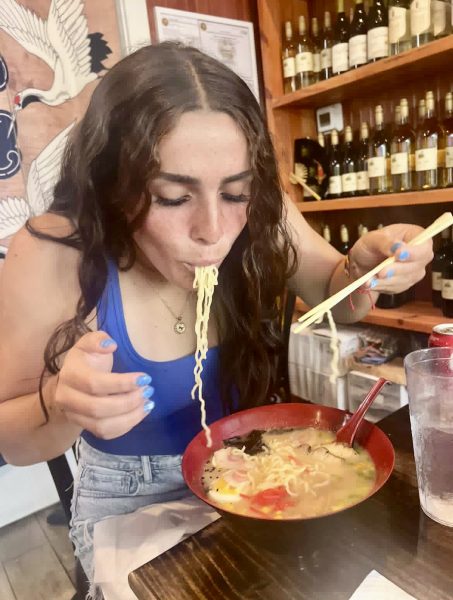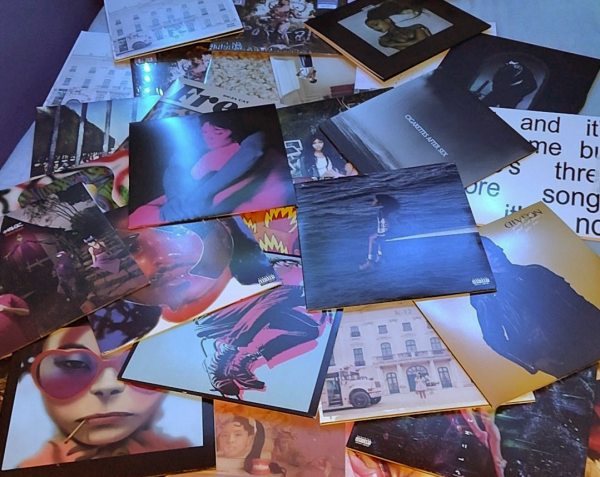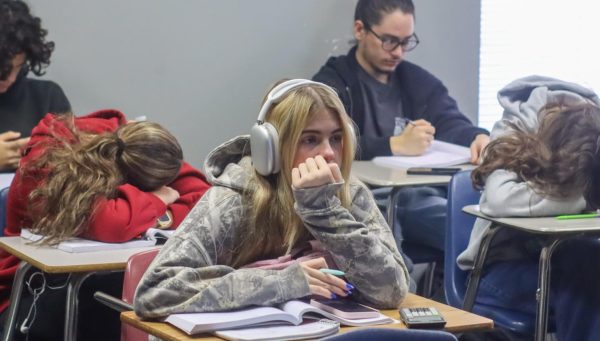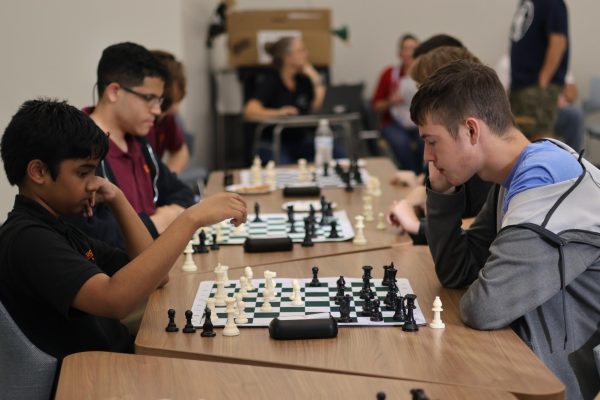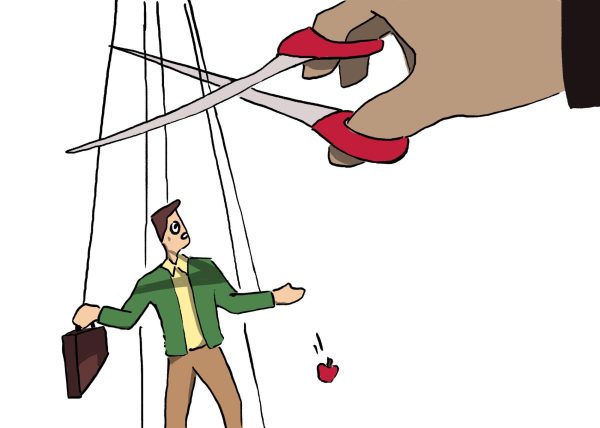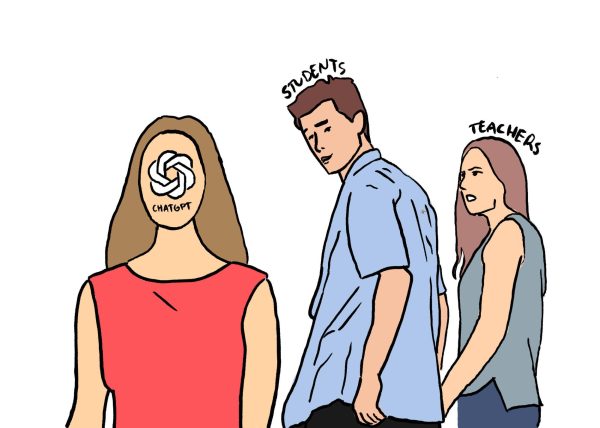Making it to the big leagues
Hagerty alumni tell what it’s really like to get into and attend an Ivy League school
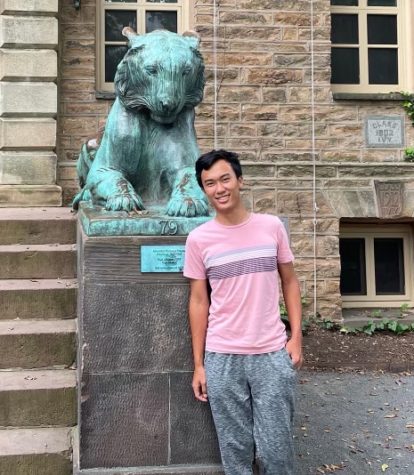
Applying early decision seemed like Alex Tao’s best bet to get into his target school: Princeton University.
For Kirsten Trevino, Columbia University seemed like a dream with its proximity to the city and many job opportunities.
Eshan Kabir found Columbia’s Core Curriculum Program, an emphasis on STEM and humanities, to be a “perfect fit.”
As Sana Yooseph worked on her college applications, she had one school in mind: the University of Pennsylvania.
“Penn has been my dream school all my life. I loved everything about it, including the proximity to the city, the incredible pre-med program, the balance of work-hard, play-hard and the gorgeous architecture,” Yooseph said. “To get there, I knew I needed to work hard and build up my academic resume. But more than that, I really tried to be a well-rounded person with an active social life and valuable extracurriculars.”
Over the past three years, Hagerty has produced more than five Ivy League students who went on to attend schools such as Columbia, Princeton, University of Pennsylvania, Brown and Yale. As the average Ivy acceptance rate is just above 9%, this is an achievement for a school that has only been open for 18 years.
Getting in
Yooseph graduated from Hagerty in 2022 and now majors in neuroscience at UPenn on the pre-med track. After taking 21 AP classes, accumulating a 4.6 GPA and scoring a 36 on her ACT, Yooseph was academically qualified to get into her dream school, but she learned it was about more than just numbers.
“I always thought that numbers mattered the most, but the reality is that thousands of students with perfect scores apply to colleges every year,” Yooseph said.
Trevino, a 2022 graduate and Columbia University freshman majoring in human rights and sociology, believes that the skills she gained from her classes at Hagerty allowed her to build up her college application, especially her essay.
“I [loved] AP Seminar and AP Calculus—you learn how to write in seminar and you learn how to challenge yourself in calculus,” Trevino said.
Kabir, a current senior who will be attending Columbia University next year, also found his essay to be the main focus of his application.
“The main things that made my application stand out was my writing proficiency and writing about my passions. Colleges want to see someone that puts their all into what they do, and that’s only really possible if you’re doing what you love,” Kabir said. “I had to back that up with solid writing—getting my message across was just as important as what the message was in the first place.”
According to collegevine.com college essays now typically count for 25% of the application, meaning high test scores do not guarantee a spot at the top schools. Although grades may no longer make or break an application, they still contribute to the admissions process, especially at Ivy League schools.
“I think at Princeton, more than two-thirds of the entire school had 4.0’s in high school,” Tao said. “Of course, I think that’s ridiculous, but that’s just how the numbers stand.”
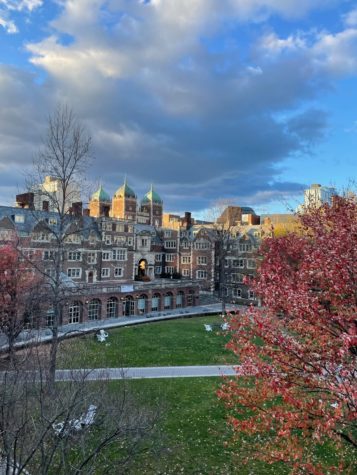
Going above and beyond
According to Tao, Yooseph, Trevino and Kabir, extracurriculars are an impactful way to demonstrate responsibility and leadership on applications.
“If you are deciding late into your junior year you want to apply to an Ivy, it’s probably too late,” Trevino said. “You have to be ahead of the curve and plan out [your] schedule and extracurriculars freshman year, not your senior year.”
Working as a Key Club officer throughout her high school career, a Key Club International trustee member—a leadership council made up of 13 students worldwide—and on the International Programs and Partners Committee chair her senior year, Yooseph found her passion in community service and believes this made her stand out.
“The board became my best friends and we worked to execute service projects with UNICEF, the Thirst Project, Khan Academy and Key Clubs across the world,” Yooseph said. “I had other extracurriculars, but Key Club was my favorite, and the scope of impact through my role as trustee was greater than my impact as officers in other clubs.”
Along with Yooseph, Tao found extracurriculars to be a main focus of his college applications, working as a local math tutor, Robotics Club member and member of Mu Alpha Theta, also known as Math Club. However, Covid-19 brought his senior year to a close, taking away his extracurriculars and opportunities.
“We didn’t really get to go to any [math] competitions,” Tao said. “It was one of the most fun things that I did in high school, but unfortunately Covid kind of just screwed that over.”
Despite the unexpected pandemic, Trevino was also still able to show her leadership, working on student government, Education Rocks Club and as president of the Oviedo Youth Advisory Council.
“I know people who had better grades and a higher GPA than me, but because they didn’t have any extracurriculars that broke the mold they didn’t get in,” Trevino said.
According to Kabir, extracurriculars are not only a way to improve your application, but to develop skills and relationships merely academics cannot provide.
“Hagerty, especially its extracurricular programs, have given me the opportunity to meet people that I’ll never forget,” Kabir said. “The friendships I’ve made have taught me valuable lessons about life that I’ll be able to carry on to my college education.”
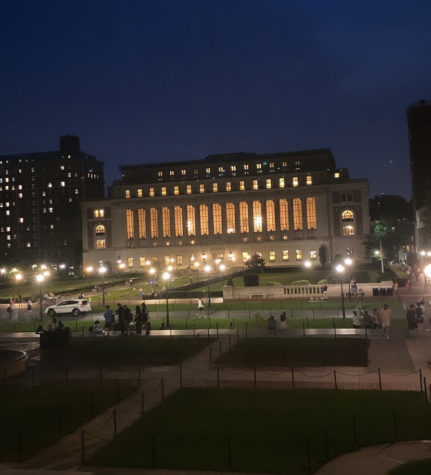
Plays and hooks
With a surplus of extracurriculars, leadership and academic excellence, choosing which schools to apply to was still a difficult decision, with multiple roadblocks keeping students from acceptance. The plague of “legacy” admissions, or acceptances due to a family friend or family member being connected to the school, privileged financial backgrounds and even feeder schools may bring unequal advantages and contribute to a student’s likelihood of getting into an Ivy league. According to a 2022 article written for Forbes, despite private school students making up only 8.5% of American high school students, they accounted for 40% of the incoming freshman classes at Harvard, Yale and Dartmouth.
“A few of my friends come from notorious feeder schools where the guidance counselors know the admissions officers personally, and they are kind of able to get their kids in there in various ways,” Tao said. “Of course, Hagerty doesn’t have any of those connections, but that’s just something that you have to deal with.”
Tao graduated in 2021 and is majoring in math and minoring in computer science and Chinese at Princeton University. While he originally had an interest in math, he knew he needed to make his application stand out, leading to a shift from his original major.
“I didn’t apply as a computer science or math major anywhere,” Tao said. “Actually, for Princeton, I applied as an East Asian Studies major, which is interesting, just because I felt like my application could tell a much better story with that route.”
Although Asian Americans only make up 13% of STEM workers in the U.S., a 2018 Pew Research study reveals that they are “overrepresented in the field” in relation to their overall share of the workforce. Likewise, STEM fields in colleges and universities have an overwhelmingly Asian population, making programs and majors in that area very competitive, according to Tao.
“I can’t go on there and talk about my programming or math experience because there are 100,000 other Asian American males that are trying to do the same thing,” Tao said. “So in terms of strategy, I would recommend that you try to deviate from a lot of what your competitive peers are doing.”
Not only do connections help some students get into these schools, but plays and hooks are present after acceptance as well.
“[There is an] intense pre-professional culture where everyone already has summer internships lined up through their connections,” Yooseph said. “There is so much nepotism and networking is so important—if you don’t know the right people it’s hard to find opportunities.”
Along with connections, income also plays a factor in getting into these schools. According to a 2019 CNBC article, over 14% of Ivy League students’ households’ are in the top 1% of income. Coming from a middle-class family, Tao not only took prestige into account when filling out applications but financial aid options as well. According to Edmit, the average financial aid given to middle-income families by Ivy League schools is $8,876—much less than the average $15,330 given by public colleges – but still a substantial benefit for private schools.
“Financial aid was a really big consideration for me when I applied to school,” Tao said. “The public school systems, especially if you’re out of state, they’re not very nice to middle-class income families like myself. I think financial aid is awful, especially for my family’s income range, so I focused on private schools just because they give very generous aid.”
Fitting in
After finding the schools with the right mix of prestige and aid, Yooseph, Tao and Trevino had to assimilate to the college experience. While this is a common shift many young adults face, life at an Ivy League has both its similarities and differences to public colleges, according to Tao.
“There’s a few distinct [differences, like] our meal plans and our housing plans are predetermined by the school, so we don’t have to worry about eating at all for like two years,” Tao said. “My dining experience has been just remarkably different from my friends at UT and UF who have to cook.”
While meal plans and housing were predetermined benefits, going into these Ivy schools also came with some unexpected surprises. Despite the common idea of an Ivy being cutthroat and rigorous, Yooseph found it to be similar to the high school experience at first, getting to meet and mix with new people.
“Going into Penn, I expected rigorous classes and intense competition, and that is partly true,” Yooseph said. “However, there are so many nice people who are genuinely so uplifting.”
Tao also saw similarities between college and high school, not only getting to experience higher education but joining and discovering new interests.
“I am in the Princeton Poker Club [and] play a lot of poker,” Tao said. “I got into it last semester—I’ve made a lot of good friends there.”
With clubs, committees and Greek Life, Ivy Leagues still allow students time for recreation and have a range of social opportunities for students, according to Yooseph.
“The social scene is very active, every day of the week there is something going on,” Yooseph said. “Every night is so fun, but it’s important to maintain a healthy work/life balance and not party too
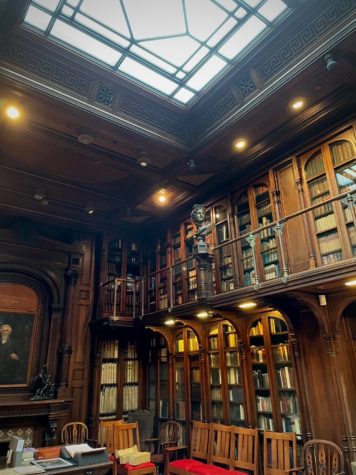
hard.”
Despite these surprising factors, the rigor of an Ivy League is still very real, but comparable to that of an AP curriculum, according to Trevino.
“It’s more workload, but there’s a lot more free time in the day and your schedule is totally up to you,” Trevino said. “We don’t all study 24/7 and a lot of people aren’t as smart as you might assume.”
Looking towards the future, Kabir expects a culture shock for his move to New York, bringing both worry and anticipation.
“It’s a massive paradigm shift, and I hope I can overcome that hurdle. I’m most excited for the same thing, though,” Kabir said. “Living in the city has been a dream of mine for a long time, and I’m really excited to be moving to such a cultural center.”
Compared to high school, Tao also noted how diversity has been a key factor in his assimilation to college life, going from a 6% Asian population to 28%.
“That’s a big change for me—I have friends that have very similar cultural backgrounds to myself,” Tao said. “I don’t feel like a minority anymore on campus—I think that’s probably one of the nicest things about my experience so far.”
As Ivy Leagues hold up an idea of prestige, honor and high rigor, they can lead students to have a stressful high school career, trying everything to get in. However, students should remember that the school of their dreams may not be the best school for them in reality, and being at an Ivy does not simply mean one student is better than another.
“If you don’t get into an Ivy and you do all of the things listed above, it’s not because you’re not worthy of getting in,” Trevino said. “Be willing to work hard, be humble and respect the process.”
Your donation will support the student journalists of Hagerty High School. Your contribution helps us publish six issues of the BluePrint and cover our annual website hosting costs. Thank you so much!


